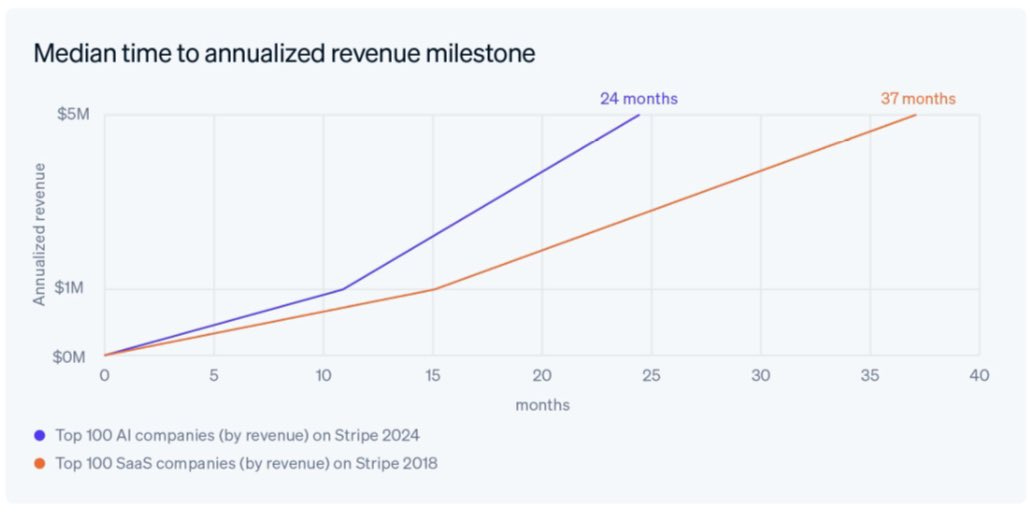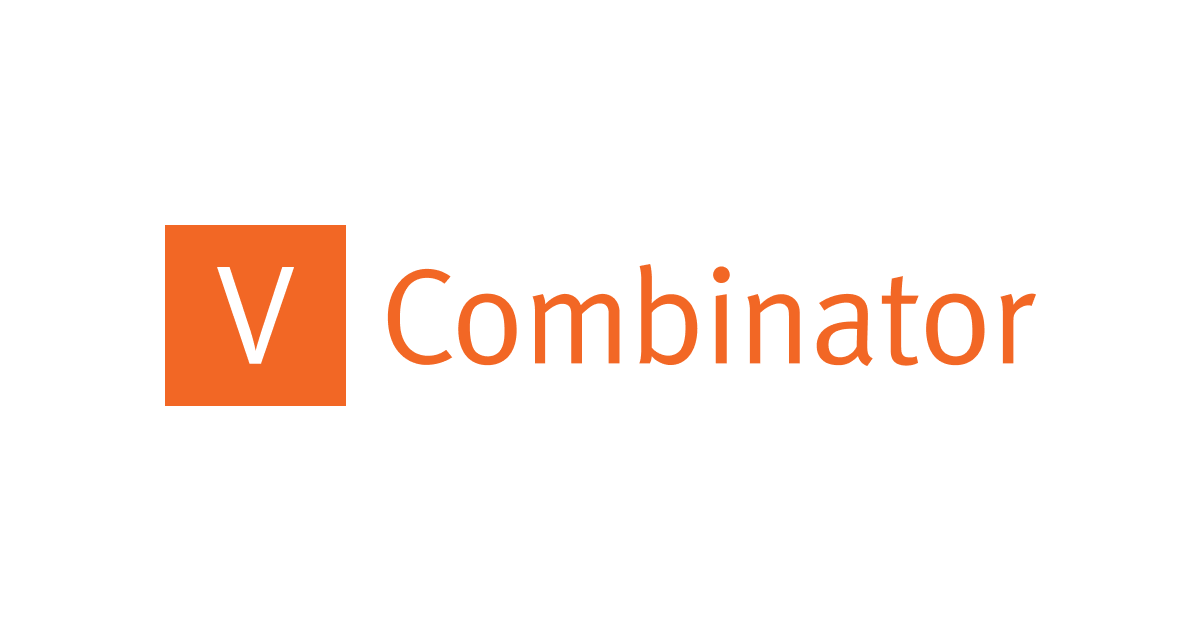AI is Changing the VC Industry
The venture capital (VC) industry, traditionally known for its small-scale, hands-on approach, is undergoing significant changes in the AI era. Two key shifts are happening:
Investment models are evolving.
AI is replacing human investors in various tasks, potentially automating the entire investment process.
Changes in Investment Models
AI has significantly lowered the barriers to starting AI-powered businesses and shortened the time needed to prove growth. New investment models are emerging as a result.
A recent Stripe report revealed that the median time for the top 100 AI companies to reach $5 million in revenue is one year shorter than for the top 100 SaaS companies.
Similarly, Y Combinator (YC) data shows that startups in its latest batch are growing much faster than before, not just in user numbers but in actual revenue. In the past nine months, these companies have seen weekly revenue growth of 10%.
YC’s CEO Garry Tan highlighted that this isn’t just a few standout companies—the entire batch is growing at this rate, something unprecedented in previous YC cohorts.
A key driver of this growth is AI-powered coding, often called Vibe Coding. In this YC batch, 25% of startups rely on AI to write 95% of their code.
This trend has two major consequences:
Smaller teams: Companies no longer need large teams of 50-100 engineers.
Lower funding needs: More startups can reach $10 million ARR with teams of fewer than 10 people.
Garry Tan believes that while recent layoffs at big tech firms have made many engineers anxious, AI actually presents huge opportunities for them.
In this YC batch, 80% of startups are AI-related, and founders can now validate their business models much earlier.
New Investment Approaches
These shifts in startup dynamics have led to alternative investment models, such as:
Venture Studios
Profit-sharing investments, now dubbed “Vibe Combinator” as an alternative to YC’s traditional model.
For example, Gumroad founder Shil Lavingia recently launched a funding model tailored for Vibe Coders:
Investment: $100,000
Return: 10% of future profits
Purpose: To support AI-powered independent developers so they can focus on their projects without financial pressure.
The exact profit-sharing period is unclear, but many believe 10% is too high—some suggest 5% for $100,000 or 10% for $250,000 as more reasonable alternatives. Lavingia is open to negotiations, and his funding program has already received many applications.
This profit-sharing model isn’t entirely new, but AI is accelerating its adoption. Calm Fund, for instance, has used this approach for five years with its Shared Earnings Agreement Letter (SEAL).
Under this model, investors start receiving profit distributions one year after investment, based on net earnings after deducting costs like founder salaries.
Calm Fund said at least a dozen companies are profitable enough to be making quarterly Shared Earnings payments.
To accommodate startups seeking further funding, Calm Fund introduced SEAL+SAFE, allowing founders to switch to equity financing if needed.
AI Replacing Humans: The First AI Angel Investor
The second major shift in VC is AI replacing human investors in decision-making. Previously, AI tools mainly assisted investors with research and due diligence.
However, with the rise of AI Agents, we are now seeing fully AI-powered investors: The first AI Angel Investor just wrote a $100k check to a startup and helped herself get invested from her first fully curated investor.





